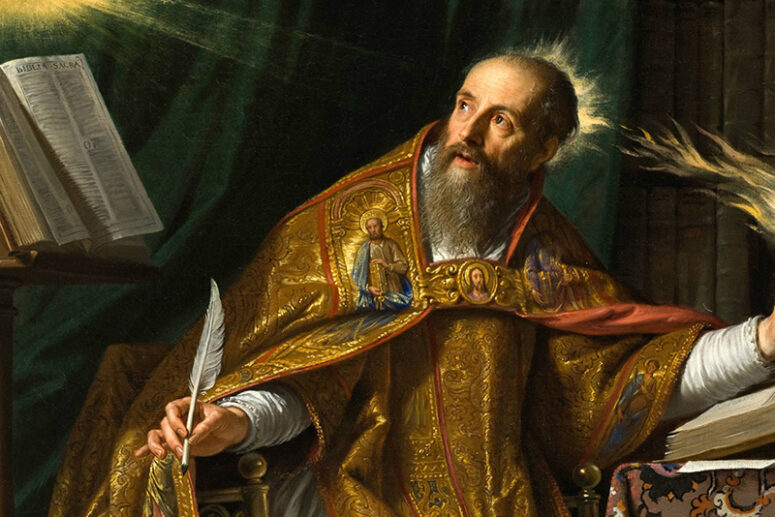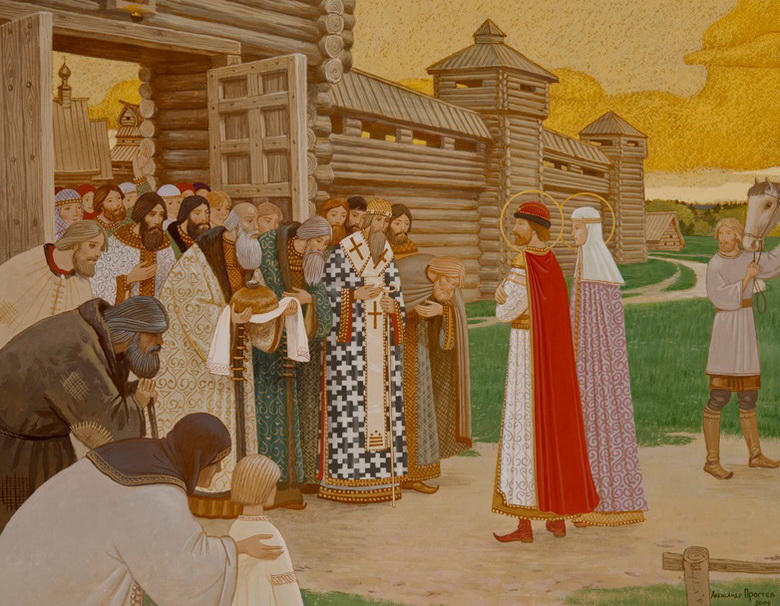
The church historian V. Bolotov proposed a system with 4 stages of acceptance of a particular theological idea or statement by the entire Church, in order to describe the attitude of the Church towards a particular belief. These four stages are: a dogma, a theologoumenon, a private theological opinion and a heresy. Their essence, examples and differences can be found in this article.
Dogma is an indisputable doctrinal truth accepted by the whole Church. A dogma is expressed either in the Creed or in an exact formulation, excluding false interpretations.
The main properties of a dogma are: being a doctrinal statement – a dogma contains a doctrine about God and Divine Economy; being divinely revealed – a dogma is not deduced logically, but is given to man by God; being an inseparable part of the Church – a dogma arises and is kept only in the Universal Church; generally binding nature – a dogma must be recognized by all members of the Church.
Formally, dogmas can be divided into those adopted at the Ecumenical Councils and those originating from Scripture. The former originated as a response to theological discussions, and the latter are clearly expressed in the text of Scripture. Below are some examples of both types of dogmas:
1. – doctrine of the Incarnation
– doctrine of the procession of the Holy Spirit from the Father
– doctrine of Dyothelitism (two wills of Christ)
2. – doctrine of original sin
– doctrine about the Providence of God
– doctrine of Atonement
A theologoumenon is a doctrinal principle confessed by a Holy Father (or Holy Fathers) of the undivided Church, and not mandatory for acceptance by each member of the Church.
Being in fact interpretations of doctrinal truths by holy ascetics, different theologoumena may give different answers to the same question. Due to their authoritative origin, theologoumena should be given preference over private theological opinions or one’s own reflections when looking for an answer to an ambiguous doctrinal question.
Theologoumena do not touch upon issues fundamental to Salvation, but answer minor issues often irrelevant to a common believer.
Examples of theologoumena:
- doctrine of the creation of angels before / on the first day of / or after the creation of the world
- the doctrine of absolute incorporeality / special corporeality of angels
- Adam’s inclination / disinclination to sin before the fall
Private theological opinion differs from the theologoumenon chiefly in that it is derived from a theologian, a religious philosopher, or a saint after the division of the Church.
The most important criterion for the acceptability of a private theological opinion is its non-contradiction with Holy Scripture, while its truth is determined by its correspondence with Scripture. It is worth emphasizing that the truth of a private theological opinion is not always provable. While the truth of a dogma and a theologoumenon is respectively indisputable and probable, that of a private theological opinion is merely possible.
Unlike theologoumena, private theological opinions can be criticized, if necessary. At the same time, it is important to distinguish between false private theological opinions and heresies. The former are mistakes of religious thinkers, and the latter constitute opposing one’s own teaching to that of the Church.
Here are some examples of private theological opinions:
- Sophiology of the Archpriest. Sergius Bulgakov (condemned by MP of ROC as false, but without accusation of heresy; condemned by ROCOR as heresy)
- doctrine of the simultaneous creation of everything by God (by Clement of Alexandria)
Due to their nature of unconscious errors, false theological opinions can also be found among saints:
- Justin Martyr’s subordinationism
- Millennialism of the Hieromartyr Irenaeus of Lyons
Heresy is the conscious adherence to an erroneous doctrine, contrary to the teachings of the Church.
According to St Nikodim Milaš, heresy does not necessarily have to concern the foundations of Orthodox dogma. It is enough to disagree with at least one dogma to become a heretic.
Private theological opinions and theologoumena may be mutually exclusive, but still not contradict dogmas or Holy Scripture in any way. However, if such a contradiction is found, then it is a heresy.
Any heresy, regardless of its content, offends against the main thing, i. e., against church unity. One who chooses heresy deprives himself of the unity of faith, love and Eucharistic communion.
A few examples of heresies:
- Arianism (a doctrine claiming the createdness of God the Son)
- doctrine of the inequality of the Holy Spirit in relation to the other persons of the Holy Trinity
- doctrine of the absorption of human nature by divine nature in the Incarnation
Thus, contrary to the widespread anti-church stance, difference of opinions does exist in the Church, although the dogma acts as the absolute standard of doctrinal provisions. In the words of St Augustine, it is important to have “In necessary things unity; in uncertain things liberty; in all things charity”. At the same time, the existing disagreement should not undermine love, which is consonant with the words of St Paul the Apostle, “…Be of the same mind, having the same love, being in full accord and of one mind. Do nothing from selfish ambition or conceit, but in humility regard others as better than yourselves” (Phil. 2:2-3).




